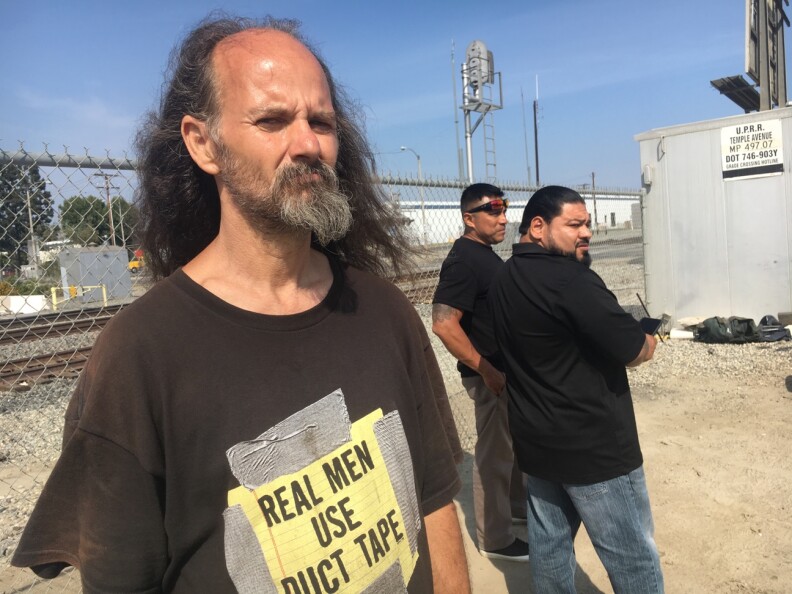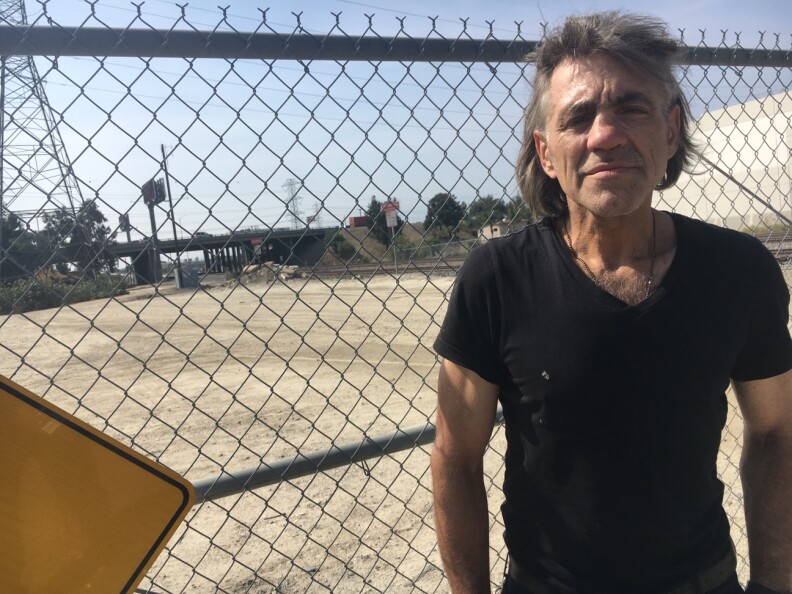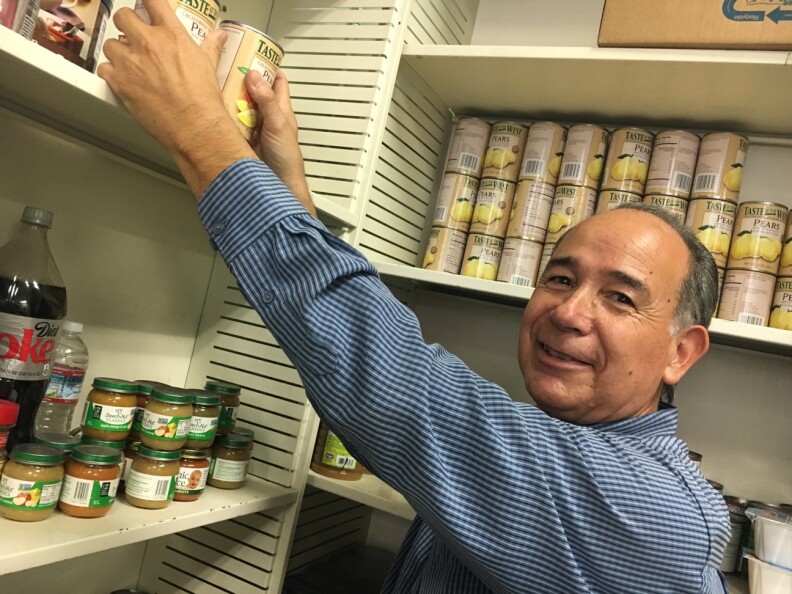This archival content was originally written for and published on KPCC.org. Keep in mind that links and images may no longer work — and references may be outdated.
Why so many more homeless vets in LA?
Despite recent gains in the fight to end veteran homelessness, a sharp rise in the numbers living on the streets of Southern California has prompted veterans and advocates to call for more action and to question whether the problems at the root of the crisis are being adequately confronted.
The number of homeless veterans hit 4,828, a 57 percent increase over the previous year, according to the Jan. 2017 homeless count released by the Los Angeles Homeless Services Authority last month.
That's a strong indication that efforts are not getting to veterans early enough, said Nathan Graeser, a researcher at the Center for Innovation and Research for Military and Veteran Families at USC's School of Social Work.
"We don't have a lot of help for people when they reach out before they are in crisis and before they are homeless," said Graeser.
And though progress has been made in helping some veterans find jobs and getting them mental health care, he said, it should start even before service members leave the military.
"We're still transitioning people out of the military into communities without a lot of local connection to resources and planning and programs, so for the most part when people get out of the military, they really have to do it on their own," said Graeser.
That can work for some vets, who are taught a culture of self-reliance. But each year, 12,000 veterans come to Southern California after military service, said Graeser, making it the biggest vet community in the nation. So it only takes a small percentage of vets running into trouble to add hundreds to the streets.
'It gets daunting'
Marine veteran Jose Luis Gonzalez ducked beneath a bridge in El Monte on a recent afternoon, where a clump of tents and tarps covered a dusty hillside.
He was looking for homeless veterans, describing what he was doing in military terms.
"We call it the search and rescue," said Gonzalez, 41. "It's very similar to the military where we go out into these types of areas, under bridges, in parks, deep in the fields of homelessness."

His goal is to make contact with veterans, find out why they're homeless and connect them with help. He's a volunteer for Vet Hunters, a group whose mission is to seek out vets in some of the most remote areas of L.A. County. On the recent trip to El Monte, he was joined by two other volunteers, both military veterans themselves.
Gonzalez, who did two tours in Iraq, said he joined Vet Hunters because of his own struggles after returning to civilian life.
"Once I got out of the military, I ended up pulling away from my family because I just didn't feel like I could explain what I saw and how I saw it and how it affected me," he said. "It was a tough transition."
He watched friends and other vets struggle, too. Recently, he and the other vets in the program have been seeing more and more vets in the streets across the county.
"Dodger Stadium, Chinatown, Highland Park, Eagle Rock, there's a huge growth," said Gonzalez.

As he spoke, Sandy Conner pushed a bicycle nearby. The 50-year-old Navy veteran said he became homeless after losing his job as an auto mechanic. In the Navy, he worked as a welder on submarines, but he struggled to find steady work after leaving the military. Today, new arrivals are joining him where he now sleeps by the busy railroad tracks.
"There's about a hundred or so that I know of between the 60 and the 10 freeway," said Conner. But, he added, their ranks are growing.
"There's all kinds of new faces down here right now," he said. "In the last week, I've seen more people down here that I never knew."
More efforts coming
Local officials are about to greatly expand efforts with money secured through two ballot initiatives. Measure HHH, approved by L.A. city voters last November, secures $1.2 billion to invest in low-income housing. Measure H, greenlighted by L.A. County voters in March, is projected to raise about $350 million annually through a quarter-cent hike in the sales tax.
In addition, the VA is moving ahead with plans to build 1,200 housing units for vets at its West L.A. campus.
Another bright spot could be the voucher program called VASH, or Veterans Affairs Supportive Housing, which can cover about 70 percent of a veteran's rent. It's a collaboration between the VA and the Department of Housing and Urban Development.
Sandy Conner, the Navy vet living in the dry riverbed in El Monte, hopes to get one.
"Once I get my VASH going, I can get housing and get more stable," he said, adding that Vet Hunters is helping him with his application. Conner said he can’t find work without a place to live.
"It's kind of hard to go for a job interview [when] it's been a day or so since last time you had access to water to take a shower; with the dust and dirt down here, everything is dirty," he said. "It gets a little daunting."
But there’s no guarantee Conner will get a voucher.

Last year the county gave away all of its 225 vouchers in just five months, according to Margarita Lares, who runs the program for the L.A. County Housing Authority. The program, which started in 2009, has so far awarded 1,754 vouchers, but there continues to be a shortage. And President Trump's budget proposal doesn't include funding for new vouchers.
"We don't know where we are today," said Lares. "We have a lot of uncertainty whether there will be any vouchers."
She said her office typically gets 5-10 referrals from the VA every week, but she's had to halt the referrals for now.
For Jose Luis Gonzalez, the Marine veteran and volunteer with Vet Hunters, the homelessness he sees on the streets is part of a deeper challenge of making sure that all veterans are welcomed back to civilian life – with the services they need.
"We served our country, we did what we could," he said. "Now all we want is to fit in and to bring purpose back to our society."




